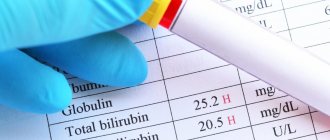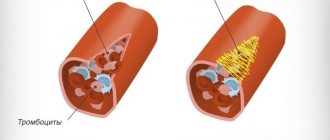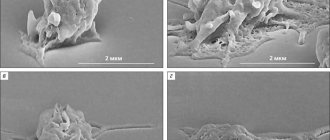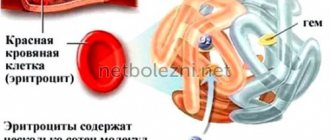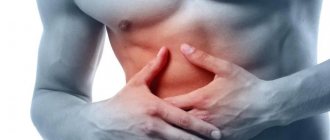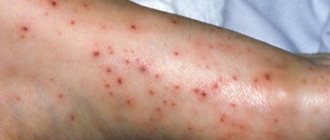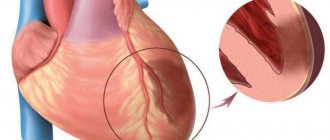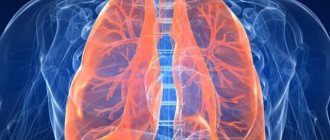Normal blood chlorine content
The indicator of the substance changes according to the age of the person. There is no division depending on gender, since hormonal levels or physiological characteristics do not affect the volume of chlorine. When interpreting the results of a blood test for chlorine, a table is used that shows the upper and lower limits of normal. A result higher or lower than them is a reason for a full examination.
- From birth to 2 months - 97-117 mmol/l.
- From 2 months to 12 months - 94-114 mmol/l.
- From 12 months to 15 years - 95-109 mmol/l.
- From 15 years - 96-106 mmol/l.
To determine the level of a substance in the body, not only blood, but also urine is often examined. This allows you to obtain maximum data about a person’s condition.
Physical and chemical properties
Content:
- Physical and chemical properties
- Biological role
- Daily norm
- Insufficiency and excess of chlorine in the body
- Sources of chlorine
- Conclusion
Chlorine is a chemical element of the main subgroup of group VII of the periodic system of D.I. Mendeleev, with atomic number 17. The compound was first isolated in its pure form in 1774 by the German chemist Carl Wilhelm Scheele in Sweden. This element is a chemically active non-metal that is part of the halogen group. Elemental chlorine under normal conditions (0 degrees) is a poisonous gas of yellow-green color with a sharp “suffocating” odor, which is 3 times “heavier” than air.
The compound reacts with almost all chemical elements, forming chlorides (except nitrogen, oxygen, carbon, inert gases). When dissolved in alkalis or water, it dismutates, turning into hypochlorous and hydrochloric acids.
In nature, chlorine is found only in mineral compounds: sylvite KCl, halite NaCl, sylvinite KCl NaCl, carnallite KCl MgCl2 6H2O, bischofite MgCl2 6H2O, kainite KCl MgSO4 3H2O. At the same time, its main reserves are concentrated in salts of sea and ocean waters, the content of which starts from 19 grams per liter.
In a healthy adult body weighing 80 kilograms, there is at least 95 grams of chlorine.
What causes chlorine levels to rise?
When blood chlorine is elevated, there may be various reasons for this. All of them are divided into 2 large categories - relative and absolute. Relative causes of increased chlorine include:
- dehydration,
- increased blood viscosity,
- unhealthy diet
- increased thrombus formation.
Fluid deficiency in the body is considered the primary cause of increased chlorides in the blood. Dehydration can develop both due to insufficient water intake and due to the use of diuretics, dysbacteriosis, prolonged intense diarrhea and profuse vomiting. If there is insufficient fluid, the body loses the ability to remove excess substances through sweat or urine and therefore its level, if necessary, cannot be lowered naturally.
It is known that more chlorine is lost with intense and repeated vomiting than with diarrhea. This is how hypochloremia develops.
The absolute reasons that the level of chlorine in the blood is elevated are:
- nephritis,
- nephrosis,
- nephrosclerosis,
- disturbance of metabolic processes,
- metabolic acidosis,
- excessively strong and very frequent breathing,
- disorders in the functioning of the cardiovascular system,
- renal failure,
- Cushing's disease,
- diabetes insipidus,
- acetylsalicylic acid poisoning,
- urethrosigmostomy,
- use of carbanhydrase inhibitors (Diacarb).
The group is called absolute, since in all of the above diseases and conditions, chlorides in the blood are always elevated.
Indications
- Determining the cause of prolonged vomiting, diarrhea, respiratory and heart rhythm disturbances, weakness;
- Suspicion of acidosis or alkalosis;
- Diagnosis and assessment of the effectiveness of therapy for electrolyte imbalance in the body;
- Assessment of the risk of developing electrolyte imbalance during treatment;
- Diagnosis of diseases of the kidneys and adrenal glands, heart and blood vessels;
- Monitoring of treatment results and prognosis of diabetes insipidus, heart failure, arterial hypertension.
Symptoms that may be causing increased chlorine levels:
- weakness, lethargy,
- breathing disorder, accompanied by rare, deep and noisy breaths.
- increased heart rate,
- swelling of tissues,
- increased blood pressure.
An increase in chlorine concentration (hyperchloremia) is observed with dehydration and/or impaired renal excretory function.
With reduced chlorine, symptoms may be as follows:
- increased irritability,
- tetany (painful muscle contractions similar to cramps)
- slow breathing,
- decrease in blood pressure.
Specialists who can interpret the results of the analysis: therapist, nephrologist, urologist, cardiologist, gastroenterologist, nutritionist, endocrinologist, traumatologist, neurologist, general practitioner.
How is the analysis carried out?
In order to determine increased or decreased chlorine in the blood, it is taken from a vein on the elbow or the inside of the wrist. The choice is up to the nurse performing the test and depends on the availability of the vein. Blood is taken using a special syringe or thin needle and test tube after antiseptic treatment of the skin in the puncture area. The entire procedure for collecting material takes 2-3 minutes. The collection is carried out on an empty stomach from 8 a.m. to 12 noon.
The resulting blood is centrifuged to separate the plasma. This is necessary in order to obtain blood serum. Chlorine is isolated in the serum using special compounds. Then the amount of chlorides is determined. Based on the results of the analysis, additional examination or treatment may be prescribed if the cause of the pathological disorder in the blood is known.
- Blood cholesterol levels - table by age. Cholesterol in the blood - norms for women, men and children
Chlorine value
Anions of this substance are part of almost all body fluids. Most of them are in the intercellular and blood. The main task of chlorine is to maintain acid-base balance.
It is also part of the gastric juice, which is necessary for the digestion of food. Its acid destroys microorganisms of pathogenic origin and removes them from the body.
Chlorine also helps relieve swelling, stabilize blood pressure, and normal liver function. The serum of a healthy person normally contains an amount of the substance that is obtained at the rate of 30 mmol/kg. In the blood - from 97 to 108 mmol/l.
Foods rich in chlorine
Since chlorine enters the body from the outside, in order not to increase its level to dangerous values, you should not consume foods rich in it in large quantities. These include:
- buckwheat grain,
- rice cereal,
- peas,
- eggs,
- fatty sea fish,
- crucian carp
Also, speaking about how to lower the level of chlorides in the blood through nutrition, it should be noted that table and sea salts retain fluid in the body and prevent the timely release of chlorine, which is why its normal concentration in the body is exceeded. It is especially necessary to monitor nutrition for persons with predisposing factors for high levels of this substance in the blood.
Diagnostics
As mentioned above, the diagnosis of hyperchloremia almost always requires additional examination. The doctor must understand why this phenomenon occurred. This is necessary to prescribe competent treatment.
What procedures will help determine that chlorine is elevated? Blood analysis. He will also determine whether a person has problems associated with the liver or kidneys.
The patient will also need to provide the doctor with information regarding his diet and list the medications he is taking, even dietary supplements and herbal supplements. Often, it is because of the medications used that the chlorine level changes.
Low chlorine levels: causes, symptoms and signs
Pressure surges are not a specific sign of hypochloremia
A person sometimes experiences low levels of chlorine. This condition may also indicate dangerous pathologies. Most often, the cause of this phenomenon is pathologies of the gastrointestinal tract of an inflammatory nature. The complete exact picture of chlorine deficiency in the human body has not yet been determined, but the most characteristic manifestations of the condition are:
- severe exhaustion leading to anorexia;
- insufficient urge to defecate;
- hair loss;
- loss of teeth (in especially severe cases);
- swelling;
- constant pronounced surges in blood pressure;
- alkalosis.
If at least some of the symptoms of the disorder appear, it is necessary to undergo an examination, including identifying the level of chlorine in the blood.
Hypochloremia (low chlorine levels)
- Insufficient intake of chlorine from food;
- Poor absorption in the stomach;
- Extrarenal loss of chloride (vomiting, diarrhea, increased sweating);
- An increase in the volume of extracellular fluid (water intoxication, manifested by tissue swelling);
- Congestive heart failure;
- Polyuric stage (gradual increase in diuresis) of renal failure;
- Chronic respiratory acidosis;
- Metabolic alkalosis;
- Diabetic ketoacidosis;
- Syndrome of inappropriate secretion of antidiuretic hormone;
- Aldosteronism (Conn's syndrome - increased secretion of aldosterone by the adrenal glands);
- Acute intermittent porphyria (hereditary damage to the peripheral and central nervous system);
- Damage to the hypothalamus as a result of head trauma;
- Overdose of diuretics (diuretics);
- Taking laxatives.
Important!
A sharp decrease in chlorine content is a sign of the development of a rather serious human condition - metabolic alkalosis and can lead to death.
Sources:
- Data from the independent laboratory Invitro, 2021
- Data from Helix Laboratory, 2021.
- Ghassan Kamel, MD. Chloride, - English-language database of current medical data Medscape, 2021.
- Joshua L. Rein. “I don't get no respect”: the role of chloride in acute kidney injury, - Renal Physiology American journal of physiology, 2021.
- Glenn T Nagami. Hyperchloremia - Why and how, - data from the US National Library of Medicine PubMed, 2021.
Treatment of hyperchloremia
It is nonspecific, and therefore does not pose any special difficulties. Here's what therapy includes:
- Taking medications to prevent diarrhea, vomiting and nausea.
- Change of medications. This is the case if they are the cause of the imbalance.
- Be sure to drink 3 liters of clean water per day.
- If necessary, obtain intravenous fluids.
- Maintaining a balanced diet.
- Treatment of mental illnesses if they are the cause of digestive disorders.
- Avoid aspirin, coffee and alcohol.
- Monitoring glucose levels.
Normalizing the amount of chlorine in the blood is not difficult. But preventing hyperchloremia is not easy. Especially if it was caused by Addison's disease.
Hypernatremia
This, as the name suggests, is the name of a condition in which there is a lot of sodium in the blood. It also occurs frequently.
If sodium is elevated in the blood, and chlorine is also outside the normal range. This element is also responsible for retaining water in the body and maintaining electrolyte balance. It is also involved in the functioning of the muscular and nervous systems.
The normal level of this substance is 135–150 mmol/l in an adult. About 85% of it is found in the blood and lymph.
Consequences
If sodium and chlorine are increased in the blood, then the cells lose water, as a result of which their volume decreases. This is fraught with intracerebral hemorrhages. Diarrhea develops, intense sweating begins, and the amount of fluid in the bloodstream increases.
If the amount of cations (sodium in particular) increases to 180 mmol/l, coma, even death, is possible.
If we talk about less terrible consequences, then we should highlight disruption of the renal nephrons and the secretion of vasopressin, high blood pressure, edema (including cerebral edema) and strokes.
That is why you should not ignore symptoms, even those that seem insignificant. The sooner the problem is identified and treatment prescribed, the better.
